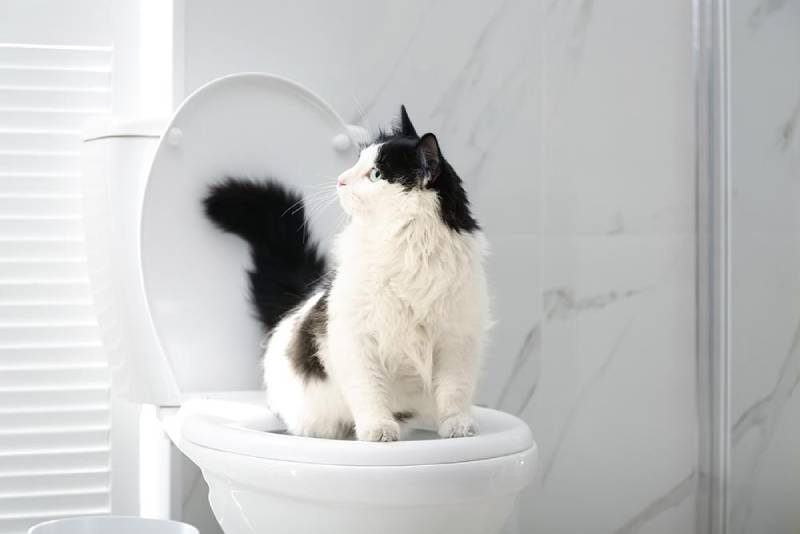Avoid Clogs and Damage: Don't Flush Cat Poop Down Your Toilet - Expert Recommendations
Avoid Clogs and Damage: Don't Flush Cat Poop Down Your Toilet - Expert Recommendations
Blog Article
The content which follows involving Don’t flush cat feces down the toilet is amazingly compelling. Read it for your own benefit and decide what you think about it.

Introduction
As feline proprietors, it's essential to be mindful of how we dispose of our feline close friends' waste. While it may seem hassle-free to flush pet cat poop down the commode, this technique can have destructive repercussions for both the atmosphere and human health.
Ecological Impact
Flushing cat poop introduces damaging microorganisms and parasites right into the water, posing a substantial risk to marine communities. These contaminants can negatively impact marine life and compromise water quality.
Health Risks
In addition to environmental issues, flushing feline waste can also position health and wellness risks to humans. Pet cat feces might consist of Toxoplasma gondii, a parasite that can create toxoplasmosis-- a possibly serious disease, particularly for expecting women and individuals with damaged body immune systems.
Alternatives to Flushing
Fortunately, there are safer and more responsible methods to take care of pet cat poop. Consider the adhering to options:
1. Scoop and Dispose in Trash
One of the most typical technique of getting rid of feline poop is to scoop it into an eco-friendly bag and throw it in the trash. Be sure to use a devoted clutter scoop and dispose of the waste promptly.
2. Usage Biodegradable Litter
Choose biodegradable cat clutter made from materials such as corn or wheat. These clutters are environmentally friendly and can be safely disposed of in the garbage.
3. Bury in the Yard
If you have a lawn, think about hiding pet cat waste in a marked location far from vegetable yards and water resources. Be sure to dig deep enough to avoid contamination of groundwater.
4. Install a Pet Waste Disposal System
Buy a pet dog garbage disposal system specifically developed for cat waste. These systems use enzymes to break down the waste, lowering odor and environmental impact.
Verdict
Responsible family pet possession prolongs past providing food and shelter-- it likewise includes appropriate waste monitoring. By avoiding purging pet cat poop down the commode and going with different disposal approaches, we can lessen our ecological footprint and safeguard human health.
Why You Should Never Flush Cat Poop Down the Toilet
A rose by any other name might smell as sweet, but not all poop is created equal. Toilets, and our sewage systems, are designed for human excrement, not animal waste. It might seem like it couldn’t hurt to toss cat feces into the loo, but it’s not a good idea to flush cat poop in the toilet.
First and foremost, assuming your cat uses a litter box, any waste is going to have litter on it. And even the smallest amount of litter can wreak havoc on plumbing.
Over time, small amounts build up, filling up your septic system. Most litter sold today is clumping; it is made from a type of clay that hardens when it gets wet. Ever tried to scrape old clumps from the bottom of a litter box? You know just how cement-hard it can get!
Now imagine just a small clump of that stuck in your pipes. A simple de-clogger like Drano isn’t going to cut it. And that means it’s going to cost you big time to fix it.
Parasitic Contamination
Believe it or not, your healthy kitty may be harboring a nasty parasite. Only cats excrete Toxoplasma in their feces. Yet it rarely causes serious health issues in the cats that are infected. Most people will be fine too if infected. Only pregnant women and people with compromised immune systems are at risk. (If you’ve ever heard how women who are expecting are excused from litter cleaning duty, Toxoplasma is why.)
But other animals may have a problem if infected with the parasite. And human water treatment systems aren’t designed to handle it. As a result, the systems don’t remove the parasite before discharging wastewater into local waterways. Fish, shellfish, and other marine life — otters in particular — are susceptible to toxoplasma. If exposed, most will end up with brain damage and many will die.
Depending on the species of fish, they may end up on someone’s fish hook and, ultimately on someone’s dinner plate. If that someone has a chronic illness, they’re at risk.
Skip the Toilet Training
We know there are folks out there who like to toilet train their cats. And we give them props, it takes a lot of work. But thanks to the toxoplasma, it’s not a good idea.

Do you like reading about How to Dispose of Cat Poop and Litter Without Plastic Bags? Make a remark directly below. We'd be glad to see your opinions about this article. Hoping to see you back again in the future. Sharing is good. You never know, you could be helping someone out. Many thanks for your time. Visit us again soon.
Click Here Report this page